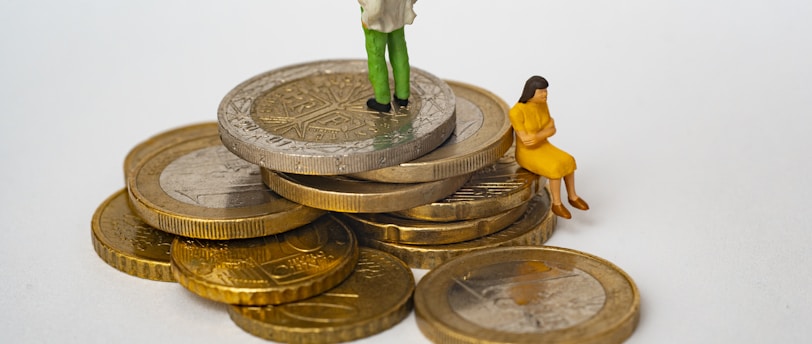Time, Money, And Energy: This Is How You Prioritize
How to prioritize time, money, and energy.
SELF-IMPROVEMENT


Time, money, and energy are the three pillars of individuals. Where, when, why, and what you do with your time, money, and energy, make you who you are. Money and energy are abounding and don’t even compare to time in terms of scarcity though.
Money ≠ Time!
“Time is money” is a misnomer. A misunderstanding. A misevaluation. A mathematical error. A science-based, peer-reviewed, double-blind, placebo-controlled, randomized-controlled trial, hodgepodge of bullshit. Money isn’t worth nearly as much. Money can’t buy time, but time can buy money, and money can buy energy.
Energy leans into the wee-woo psychology crap, but it can be bought. Dedicate your personal time, and you’re buying energy with time. Staff up a company, and you’re buying it with money. Energy is an intangible and must-have. Certain things fuel it, certain things drain it—money and vision fuel the staff, excitement and willpower fuel you.
Yes, There Are Limits!
Straight away, time stands out. Jeff Bezos woke up today with the same share you did, twenty-four hours. Jeff Bezos was born with roughly the same expected lifespan, twenty-eight thousand days. Jeff Bezos can own the planet and it’s manpower, but he cannot own any more time than you.
Money can be saved and placed aside—invest it into a fund or company. Energy can be refueled and amplified—screw it, hit the Bahamas. Time is a different story. You can only save so much before you inevitably hit a ceiling. You can’t make it compound like money or refuel it with external means like energy. You can merely use it and hope the rest turns out for the best.
How Time Is Used = Everything
Eighty years. A thousand months. Four thousand weeks. Twenty-eight thousand days. Forty million minutes. That’s approximately how long the universal cosmos hands humans when the sperm meets the egg. Evolving healthcare might bump it up, artificial intelligence robots disintegrating the biological handicap might bump it down. How long do you have left?
While we have a democratically flawless share of time, how we vest it determines our other two pillars. Work for twenty-four hours per day and your energy stores won’t keep up, nor will you have time to worship your hard-earned cash. Each of the three influence one another and are interconnected.
Time Is The Real Limit
The interplay and management of these three resources is the lifeblood of any person and team. Time allocation affects energy and finances—example above. Energy management impacts productivity and financial success. Money handling provides power, freedom, and opportunity for time and energy to seep into. Time first, energy second, money third.
Age is a cornerstone in the time-energy-money dichotomy. A twenty-year old has all the energy in the world. A thirty-year old has three-fourths of his younger counterpart. A forty-year old has half and can’t pull those all-nighters and play as hard. A fifty-year old has one-forth, a seventy-year old has one-tenth, and it trickles down. Our opportunities lessen with time.
Time + Choice = Momentum
What you do now determines nothing. What you do tomorrow determines nothing. What you do a week from determines nothing. What you do over time determines everything. Whether you will be a leader or a follower, an employer or employee, a creator or consumer. You are constantly regressing or progressing. And how you choose to invest your most precious resource—time—determines if you’re a bear or bull market.
Set your eyes on time, then energy, and only then money. Financial freedom is tentative on what you give up in exchange. You can have an infinite bank account, but if you lack the energy or time to utilize it, it’s of no use. You can have the infinite bank account and twenty-four hours free daily to match, but if you lack the energy, you fall short of happiness.


Complimentary Alignment
Ultimately, money is worthless without adequate time and/or energy, while adequate time and energy turn a moneyless life enjoyable. Leave money as the last puzzle piece, and it clicks automatically. First: know thy time. Track it. Where is it really going? Second: cherish thy energy. What drains you and what fuels you? What activity which fuels you isn’t receiving enough time (and vice versa)?
Ideally, we align our resources for them to maximize one another. We take our time and invest it into something that fuels us—art, work, business, crafts, whatever. We then try to earn wealth for our needs with the combination. Keyword: needs. Trust me, when you spend your time on an activity which energizes you in the process, needs aren’t steep.
Ikigai and Wabi-Sabi
The Japanese have the “Ikigai”, a terrific way to illustrate what to aim for. What you love, can be paid for, are good at, and what the world needs. The intersection of your passion, profession, vocation, and mission. Could you call your current work your Ikigai? If not, which component is missing, and why? What can you do about it? What will you do about it?
In a similar boat, Japan also has “Wabi-Sabi”. I know, funky name. Wabi-sabi is an aspect of traditional Japanese motives. Simple motives. Life is temporary, and we ought to find beauty and magic in the small. “Perfect” is a myth. Embrace your ups and downs. Learn to make the most of what you currently have. Take the steps, in spite of your fear of failure or unrealistic standards. Essentially, be resourceful and appreciative in what you pursue, and don’t let those self-debilitating thoughts stop you.
Time Tracking Experiment
To let you go with something practical, I advise pulling an experiment on yourself. How-to: track all your time spent on specific activities for a week; at the end of the week, tally up the time, and figure out which activities drained you versus fueled you. The rationale: (1) you see where your time actually goes, (2) you see which activities might be costlier than you think energy-wise, and (3) you get ideas for change—since time is the most limited of all!
In the end, time, money, and energy are the three principal resources of every human being. Prioritize them in order of time, then energy, then money, and watch life click into place. Food for thought: recall a period of your life when you prioritized money over energy and time and you’ll understand how these priorities play in action. “Your time is limited,” said Steve Jobs, “so don’t waste it living someone else’s life.”